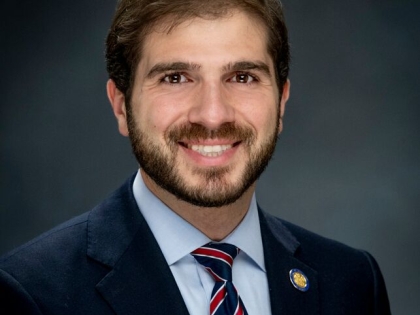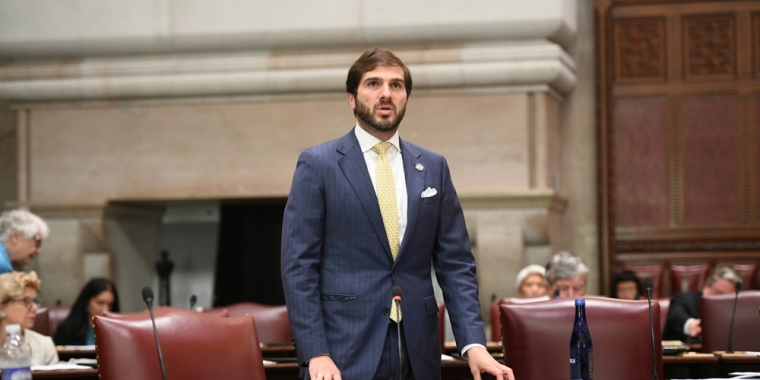
Sen. Gounardes’ Bill to Increase Drug Price Transparency is Signed Into Law
September 30, 2024
-
ISSUE:
- Health Care
- Medicaid

FOR IMMEDIATE RELEASE: SEPTEMBER 30, 2024
New York State Senator Andrew Gounardes released the following statement today in response to Governor Kathy Hochul’s signing of S9040, which loosens Pharmacy Benefit Managers’ (PBMs) chokehold on medical costs by eliminating the “gag clause” that prevents pharmacists from discussing reimbursement rates with customers:
“New Yorkers deserve easy, affordable access to the medications they need. But for decades, pharmacy benefit managers have held patients hostage, serving as unwanted middlemen who stand between patients, doctors and pharmacies, dictating what drugs patients can receive and how much money pharmacists can get for them. That means higher costs and decreased access to medications for patients, as well as the closure of independent pharmacies.
“They say sunshine is the best disinfectant. My new law loosens PBMs’ grip on our health care system by allowing pharmacists to openly discuss reimbursement rates on a patient's medication. PBMs want to keep patients in the dark about the true cost of their medication. This policy empowers patients with the knowledge they need to demand fair rates and fair access.
“No one should have to go without the medication they need. Thank you to Governor Kathy Hochul for signing this important reform into law.”
Background:
“Pharmacy Benefit Managers” (PBMs) are third-party companies that function as intermediaries between insurance providers and pharmaceutical manufacturers. The Pharmacists Society (PSSNY) has described PBMs as “parasites in the system of healthcare delivery.” They offer little value to New Yorkers who simply want access to their medication. Rather, they stand between the patient, physician and the pharmacist, dictating what drugs the patient can receive, and how much money a pharmacist can receive for that drug.”
Today, only three PBMs control nearly 80% of all prescriptions filled in the US, and pharmacies affiliated with the three largest PBMs account for almost 70% of all specialty drug revenue, according to the Federal Trade Commissions. This vertical and horizontal PBM consolidation has resulted in increased costs to patients and the closure of independent pharmacies.
In 2018, New York enacted a law to prevent PBMs from penalizing pharmacies that tell customers when a prescription will be cheaper out-of-pocket instead of being run through their insurance. This law took the first step to removing the "gag clause" for pharmacists by ensuring that they could discuss copays, the availability of alternative medications, or alternative methods of procuring a medication with patients. These changes ensured greater transparency while allowing patients to receive the lowest cost for medication.
Senator Gounardes’ bill builds on the prior reform to the "gag clause" by allowing pharmacists to discuss the pharmacy's own reimbursement rates with patients.
Previously, pharmacists were prohibited from telling a patient that a particular drug would result in a negative reimbursement for a pharmacy, despite the fact that such reimbursement was likely the reason that the pharmacist couldn’t stock the patient's medication. These underwater reimbursements result in pharmacies not stocking certain medications, creating access problems for patients who don’t understand why they can't obtain the drugs they need.
Empowered with the knowledge that their drug is unavailable because of PBM reimbursement rates, patients can complain to insurers. The reform also ensures small and independent pharmacies can continue to operate by protecting them from penalties imposed by PBMs.
Press Contact:
Billy Richling
Communications Director
State Senator Andrew Gounardes
billy@senatorgounardes.nyc
###